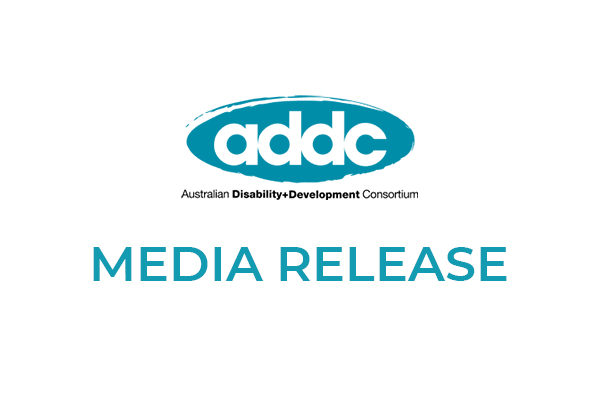COVID-19 risk for PNG people with disabilities as aid funding slashed
Media-release | June 18, 2024
The most vulnerable and disadvantaged people in Papua New Guinea, women and girls and others with disabilities, face further risks from COVID-19, with signs that deep cuts to a critical funding stream for disability inclusion will not be reversed in the coming May Federal Budget.
Leading Australian international development and disability organisations are pushing for $4.4 million in extra funding for disability inclusion in Australia’s aid budget. They want to reverse last year’s 25 percent cut and years of static funding that has not kept up with inflation.
The Australian Disability and Development Consortium fears that the 11 May Federal Budget will contain no new funding for the central budget allocation for disability inclusion. This allocation funds vital work in partnerships, capacity development and technical expertise.
“Five years of stagnant funding and a brutal 25 percent cut last year add up to a massive reduction in funding,” the chair of the Australian Disability and Development Consortium, Dr Alexandra Gartrell, said.
“There is a serious risk that cuts like this will further shut people with disabilities out of the process of planning the COVID-19 response and recovery effort in developing countries, including our near neighbours in Papua New Guinea,” Dr Gartrell said.
“All the international research and the anecdotal evidence from our field partners is telling us that the pandemic is having a horrific impact on people with disabilities.
“We know that people with disabilities are more likely to lose their jobs, educational opportunities, incomes and lives than people without disabilities as and a result of COVID-19.”
Data from high-income countries suggested that people with disabilities were more likely to die from COVID-19, making up for more than 50 per cent of all deaths. This figure was likely to be even higher in low-and middle-income countries like Papua New Guinea, where access to healthcare, protective equipment and vaccines was limited.
“With the pandemic having a catastrophic impact on people with disabilities, now is not the time for Australia to turn its back on our most vulnerable next-door neighbours,” Dr Gartrell said.
“The $4.4 million increase we are seeking represents just 0.35 per cent of Australia’s total aid budget.”
“By investing what is effectively small change, Australia can restore this critical funding and show that it is a good neighbour.”
The Australian Disability and Development Consortium has more than 700 members and subscribers that support disability and international development matters. This includes domestic Disabled People’s Organisations, international development agencies, private sector contractors and academics.
Media contact
Ingrid Svendsen, +61 409 007 530, ingrid@ingridsvendsen.com.au
Download
Download the accessible version of this media release
https://www.addc.org.au/media-release/covid-19-risk-for-png-people-with-disabilities-as-aid-funding-slashed
Related Stories

ADDC welcomes landmark investment to advance disability rights in the Indo-Pacific
Thursday 4 December 2025 The Australian Disability and Development Consortium...

2025 Federal Budget: Welcoming Australia’s commitment to disability equity and rights amidst changing global landscapes
The Australian Disability and Development Consortium (ADDC) has welcomed...

Sector welcomes new development strategy advancing disability equity
The Australian Council for International Development (ACFID), the peak...
